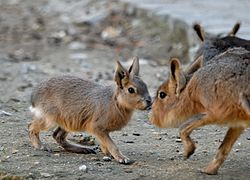As part of this scheme, NERC will expand its fellowship networking and training activities, working with host institutions, to support the development of future leaders in NERC science.
The next closing date for NERC Independent Research Fellowships is 4 October 2016. Applicants can begin submission of their proposals on the Je-S System from 1 June 2016; prior to this date, the call will not appear on the Je-S system.
In order to identify future science leaders, the assessment process will concentrate on applicants' research potential, with track record assessed in a way that is appropriate to career stage. Applicants will be expected to: demonstrate their research vision and philosophy and outline ways in which their research could be developed over the five year fellowship; explain how they will contribute to the international research area and interact with the leading international groups in their field; explain how they will enable the potential economic or societal benefits of their research to be realised.
In order to demonstrate a commitment to the development of NERC IRFs, the Head of Department of the host institution will be required to demonstrate: the availability of structured institutional support, including infrastructure and facilities, funds to support research, and access to PhD students;
support for personal development of the fellow, including mentoring, appropriate review, and training courses.
Link.



.jpg/280px-Pipra_filicauda_-_Wire-tailed_Manakin_(cropped).jpg)








